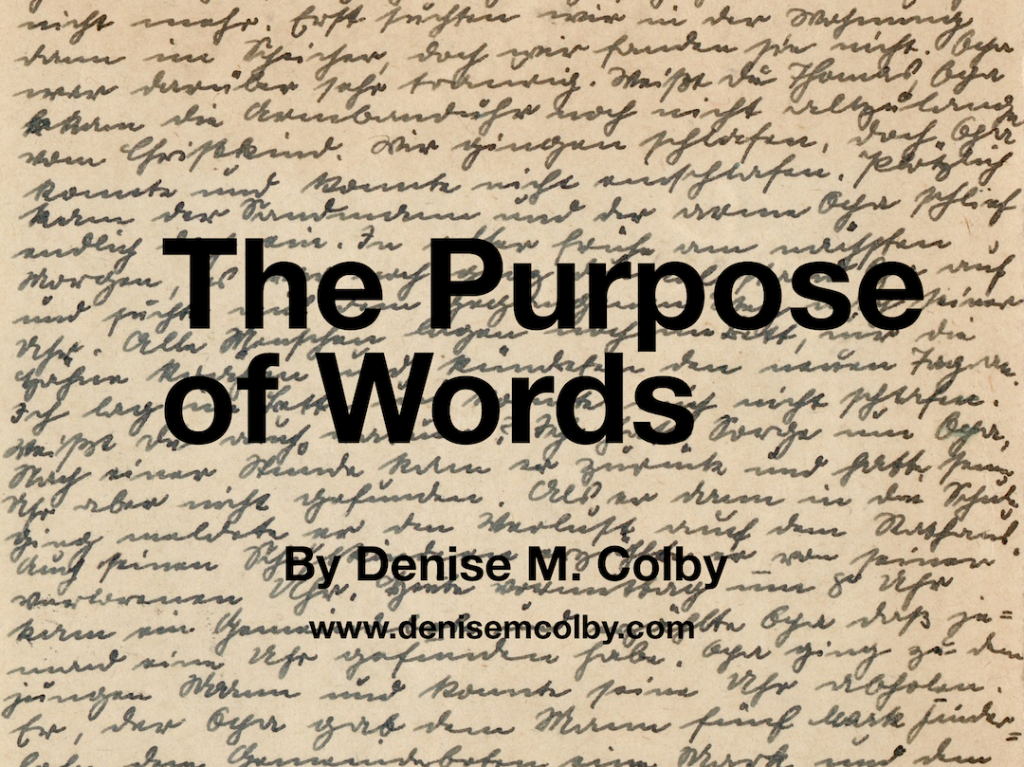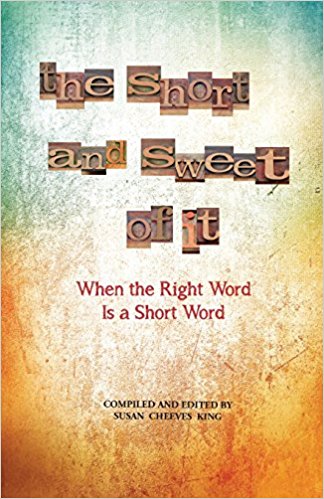
A part of this post was first posted on the Sliceoforange.net blog on April 12, 2018 (The Purpose of Words)
I love quotes, phrases, and how words are used to communicate. It’s fitting that at dictionary.com, the verb ‘word’ is defined as: to choose and use particular words in order to say or write something.
Yes, as writers that is what we do. We have a lot to say and we choose our words for a reason.
I’m always amazed at how people put together their words the way they do. Many times, in my head I find I articulate well. But when I write the words down, they don’t always sound the same way they did in my head. Does anyone else struggle with this? I’m thinking I’m not the only one. Or so I hope. But, I digress.
This post is about words and writing words
Definitions. Synonyms. Words by themselves. Words strung together. I love words. Go figure that Words of Affirmation is my love language (if you don’t know what that means — check out the book Five Love Languages by Gary Chapman. Interesting insight into why and how people show love differently) and that I got my BA in Communications.
Words are a curious thing. How you say them, spell them, and use them can change what they mean. We have rules for these words and we take classes our entire school career to learn what those rules are. And yet, there’s still a variety of ways people string words together.
What makes us each use words differently in our writing?
I don’t think it’s a new phenomenon. Diary’s and journals have been around since the beginning of time. But most of those private musings never saw the light of day. However, with the internet explosion and the plethora of blogs out there, not to mention the ease of self-publishing, anyone can express themselves however they want and post it for others to read.
Some writers use big words that I have to mull over and think about before I can continue on, while others write in a way young kids can follow. Some use clever prose, others are straightforward. Some write very long sentences, while others write less. All. The. Time. I find I enjoy reading it all.
There are several types of books out there that play with words.
One book series titled, Short & Sweet, is a compilation of one page poems and stories all written in one syllable words. Each book has had a different theme.
I submitted a piece titled “When God Calls” to the third compilation, titled The Short & Sweet of It. When the Right Word is a Short Word.
The focus of this compilation were things that matter deeply to the authors and my piece is based on the Bible verse Matthew 11:28-30 —“Come to me, all you who are weary and burdened, and I will give you rest.”
I wrote a short poem from my heart and I couldn’t be more excited as it’s my first published work.
The book launched in April 2018, and my piece is on page 77. It’s being sold on Amazonand Barnes and Noble .
Specialized books to help with writing our words
Besides one syllable word books, there are more specialized books on words. If you are anything like me, you own more than one dictionary and thesaurus. At used book stores I like to look for unique and different types of dictionaries to use for references. Recently I learned about a new word. You may have heard it before, but it’s new to me. It’s called ‘Etymology’. At first I thought it was about body parts or an animal species. It’s not!
Etymology: the study of the origin of words and the way in which their meanings have changed throughout history.
Isn’t that awesome?!
Apparently, this has been a thing for quite some time. I looked on Amazon and there are numerous books on the subject (some of which are now on my wish list). As I researched further on the internet, I found a website dedicated to the topic, https://www.etymonline.com/.
For those of us who write historical, this might give us an entire new source of understanding how or why a character would use a word. My favorite part in the few words I tried out, is the listing of slang words.
For instance, I looked up the word farm. Besides an overview on the definition it lists two slang phrases:
Fetch the farm: prisoner slang for “get sent to the infirmary”
Buy the farm: world war II slang for “die in battle”.
Now, if I was writing a World War II piece or a Civil War piece, I might use one of these. But alas, I’m not. But, the next time I’m looking for a something more on a word, I’ll use this as a resource and see where it leads.
All in all, words are wonderful.
Especially when we use them to communicate to others. Whether it’s in a private letter, an article, a novel or a blog post, words are put together to read and enjoy.
Just like you read and enjoyed this post, right?
Blessings,
Denise



